In 2018, Dr. Michael Leung (麦克·梁), chair of the International Police and Veterans Foundation (IPVF), was simultaneously chairman of the USA China Entrepreneurs Association (UCEA) and honored with a Lifetime Outstanding Achievement Award signed by President Trump. On paper, this celebrates U.S.-China friendship—but behind the scenes, Leung sits at the intersection of U.S. veteran networks and Beijing-controlled NGOs. Through these dual roles, the CCP gains a direct channel into American law enforcement and veteran communities, leveraging “people-to-people diplomacy” to influence, monitor, and potentially co-opt U.S. personnel. This is not abstract risk: it is a transnational pipeline where U.S. citizens can unknowingly become vectors for CCP strategic objectives.
In 2018, International Police and Veterans Foundation (IPVF)’s chair Dr. Michael Leung — known in Chinese media as 麦克·梁 — was reported as chairman of the USA China Entrepreneurs Association (UCEA) . The same news story praised him as a “bridge” promoting business and cultural ties between China and the United States, celebrating his receipt of the Lifetime Outstanding Achievement Award signed by President Donald Trump and presented by representatives of the IPVF.
Representatives from the American Police and Veterans Foundation presented the award, citing Leung’s outstanding achievements in promoting U.S.-China business and cultural relations. The Foundation described him as “a leading exemplar of the Asian-American business community, representing a wide spectrum of entrepreneurial talent, recognized for seniority, excellence, and achievement.”
Since 1988, Sir Michael Leung has been active to serve Chinese Communist Party’s united front work. His leadership roles include:
Chairman, USA China Entrepreneurs Association(美国中国企业家协会)
Chair, American African Asia Chamber of Commerce(美非亚总商会)
During the 2007 global financial crisis, he founded the American African Asia Chamber of Commerce.
Since 2008, he has served as Chairman of the USA China Entrepreneurs Association.
The overlapping leadership between UCEA and IPVF is not incidental. Both organizations operate in the gray zone of “people-to-people diplomacy,” formally non-governmental yet structurally aligned with Beijing’s United Front and security apparatus.
UCEA was officially registered in China under the Ministry of Public Security’s Office for the Administration of Overseas NGOs, which places it under direct CCP oversight. This arrangement enables the Party-state to guide narratives of “friendship” and “cultural exchange” through associations that appear civilian and apolitical to Western observers.
Documented Registration: USA China Entrepreneurs Association (UCEA) Under CCP Oversight
Official registration records confirm that the USA China Entrepreneurs Association (UCEA) is operating in China as a foreign NGO under formal supervision by CCP authorities.
Key registry details (published):
Organization: Beijing Representative Office, USA China Entrepreneurs Association (UCEA)
Chief Representative: Yan Zongwei (闫宗伟)
Supervisory Unit: Beijing Municipal Commerce Bureau (北京市商务委员会)
Unified Social Credit Code: G11100000896732786
Registered Address: Room 101, 1st Floor, Building 4, Xidian Village, Gaobeidian Township, Chaoyang District, Beijing
Business Scope: Liaison, promotion, and facilitation of international business activities — including investment, trade, and enterprise consulting — within the UCEA’s operational remit in China.
Activity Regions: Beijing, Tianjin, Hebei, Shanxi
Registration Date: 2018-02-05; Administrative changes recorded 2021-12-01; Annual inspections 2018–2024: all “Qualified” (合格).
Legal & political implications:
Under the framework established by the People’s Republic of China’s Law on the Management of Foreign NGOs (2017) and the CCP’s administrative apparatus, , a registered representative office such as UCEA’s Beijing office must submit annual activity plans, funding details, and personnel records to both its supervising authority and the Ministry of Public Security’s NGO administration system. The supervisory unit — in this case, the Beijing Municipal Commerce Bureau, a regime body located in the capital of Communist China, not far from Zhongnanhai (中南海, 中南坑)— acts as the official gatekeeper, ensuring all activities align with CCP policies and United Front objectives. Meanwhile, the Ministry of Public Security and other state organs hold management powers that explicitly encompass leadership, command, control, assessment, and evaluation over foreign NGOs and their operations.
(picture note: Translation by Google Translate of the Chinese webpages presents USA China Entrepreneurs Association(美国中国企业家协会) as American Chinese Entrepreneurs Association)
Why this matters:
Sir Michael Leung chairs UCEA and is also the Chair or Asia Region President of the International Police & Veterans Foundation (IPVF). The documented registration and sustained “qualified” status of UCEA’s Beijing office — led by Yan Zongwei, a propaganda worker of Central Propaganda Department of CCP(中宣部) in the People’s Daily(人民日报)— mean that UCEA’s China-side operations are formally embedded in the CCP administrative system. That embedding creates a direct line by which CCP policy, oversight, and legal exposure can extend into transnational networks that also touch U.S. police and veterans’ groups.
IPVF’s Self-Description
Here:
The International Police and Veterans Foundation (IPVF) is a non-profit organization composed of both active-duty and retired military & police members.
It is dedicated to promoting friendship and cultural exchange among police officers, veterans, and all frontline emergency responders worldwide.Through grants, corporate sponsorships, and private donations, IPVF seeks to recognize and support these courageous individuals — providing scholarships for their children and assistance to their widows and families.
The Foundation’s membership includes active and retired professionals from all ranks, without distinction of gender, race, color, language, or religion.
The International Police and Veterans Foundation (IPVF, 国际警察暨退伍军人基金会) promotes itself under the slogan “Peace and Prosperity — Chinese do not fight Chinese; Americans do not fight Americans.” Its official website introduces this as part of a wider movement for “cross-strait peace” and “pragmatic cooperation,” portraying the group as a humanitarian platform bridging communities through police and veterans’ diplomacy.
However, the organization’s leadership structure reveals an unusual convergence of business, political, and cross-strait networks.
Leadership Team
Dr. Michael Leung – Asia Region President, American African Asia Chamber of Commerce (AAACC)
Dr. Bang-Ning Liu (刘邦宁) – Vice-Chairman, International Police and Veterans Foundation; Regional Chairman in Taiwan
Vincent Chiu – Secretary-General, BMCA (2016–2020); Chief Operating Officer, Fuki Management Consulting Ltd.
Nina Tien – Secretary-General, IMC-Chinese Taipei (2019–2022); U.S.-Registered Financial Planner (since 2008)
“國際警察暨退伍軍人基金會 和平與繁榮 ~ 兩岸和平務實工作者 中國人不打中國人 – 美國人不打美國人 ipvf國際總會 團隊 宗旨 活動櫥窗 團隊 Dr. Michael Leung Sir Michael Leung Asia Region President of AAACC American African Asia Chamber of Commerce Dr. Bang Ning Liu Dr. Bang Ning Liu Vice-Chairman of International Police & Veterans Foundation Regtion Chariman in Taiwan Vincent Chiu BMCA 秘書長 2016-2020 富基管理顧問 有限公司 營運長 Nina Tien IMC-ChineseTaipei 秘書長 2019-2022 美國註冊財務策劃師2008”
Their professional backgrounds intersect with multiple cross-strait and Asia-U.S. commerce platforms—particularly those overlapping with the U.S.–China Entrepreneurs Association (UCEA), whose actual leader Yan Zongwei (闫宗伟), a propaganda worker of the CCP’s People’s Daily, operates under the guidance of the CCP’s Ministry of Public Security and United Front-linked foundations in Beijing.
Strategic Context
The IPVF’s messaging aligns closely with “people-to-people peace” narratives promoted by the CCP’s United Front Work Department, emphasizing reconciliation under a shared cultural identity. This framing, while appearing pacifist, mirrors long-standing CCP influence strategies designed to blur ideological boundaries and foster psychological alignment among diaspora groups, law enforcement networks, and veterans’ associations abroad.
The inclusion of figures such as Dr. Liu and Dr. Leung, both active in Taiwan and Asia-U.S. business diplomacy circuits, further positions the Foundation as part of a soft-power ecosystem where commerce, community, and political outreach merge.
Implications
Given the overlap between IPVF leadership and individuals connected to organizations under CCP policy guidance, the “Peace and Prosperity” initiative may serve not only as a humanitarian or veteran exchange platform but also as a vehicle for influence operations, capable of shaping perceptions within U.S. police and veteran communities.
What appears as a benign message — “Chinese don’t fight Chinese; Americans don’t fight Americans” — ultimately reflects a political subtext: promoting unity under controlled terms, discouraging resistance, and advancing the narrative architecture of the CCP’s “community of shared destiny.”
The CCP Framework Governing Foreign NGOs in China
The Law on the Management of Foreign NGOs within the Territory of the People’s Republic of China (2017) establishes a legal and administrative framework through which all foreign NGOs operating in China—including representative offices of U.S.-based associations—are subordinated to CCP oversight. Under the framework established by the People’s Republic of China’s Law on the Management of Foreign NGOs (2017), foreign NGOs operating in China—such as the USA China Entrepreneurs Association (UCEA) Beijing Representative Office—are subject not only to local compliance requirements but also to overarching CCP oversight that extends to the NGO’s headquarters abroad. Article 5 explicitly requires foreign NGOs to comply with Chinese law, meaning the CCP’s regulatory reach potentially governs both domestic offices and overseas parent organizations. Article 5 mandates that foreign NGOs comply with “Chinese law” without limitation, not restricting jurisdiction to only Chinese offices of such organisations, which implicitly includes the National Defense Law, Military Service Law, National Intelligence Law, Cybersecurity Law, Criminal Law, and Criminal Procedure Law. Under these provisions, activities that the CCP interprets as threatening national security—even if conducted abroad—could be retroactively criminalized and subject to CCP prosecution, potentially in absentia.”第五条 境外非政府组织在中国境内开展活动应当遵守中国法律,不得危害中国的国家统一、安全和民族团结,不得损害中国国家利益、社会公共利益和公民、法人以及其他组织的合法权益。”
Articles 19, 27, 35, and 43 clarify the operational and supervisory chain: NGOs must submit annual activity plans, financial reports, and personnel records to their supervising authority and the Ministry of Public Security’s NGO administration system, with adjustments requiring timely re-filing. The law explicitly empowers Chinese authorities—including the Ministry of Public Security, state security organs, foreign affairs, finance, customs, taxation, and foreign expert departments—to manage, lead, command, control, assess, and evaluate foreign NGOs and their representative offices. This mechanism of oversight is not limited to offices physically in China; even the NGO itself is under supervisory authority, meaning that foreign organizations engaging with Chinese-registered NGOs are participating in a system of CCP-guided, politically monitored activity.
“第十九条 境外非政府组织代表机构应当于每年12月31日前将包含项目实施、资金使用等内容的下一年度活动计划报业务主管单位,业务主管单位同意后十日内报登记管理机关备案。特殊情况下需要调整活动计划的,应当及时向登记管理机关备案。“
“第二十七条 境外非政府组织代表机构在中国境内聘用工作人员应当遵守法律、行政法规,并将聘用的工作人员信息报业务主管单位和登记管理机关备案。”
“第三十五条 县级以上人民政府有关部门应当依法为境外非政府组织提供政策咨询、活动指导服务。”
“第四十三条 国家安全、外交外事、财政、金融监督管理、海关、税务、外国专家等部门按照各自职责对境外非政府组织及其代表机构依法实施监督管理。”
Foreign NGOs and Compliance with CCP’s National Defense Law
Under the National Defense Law of the People’s Republic of China”中华人民共和国国防法”, all organizations within China—including foreign NGOs and their domestic offices—are legally obliged to support national defense. Article 7 specifies that state organs, armed forces, political parties, mass organizations, enterprises, social organizations, and other groups must participate in and facilitate national defense construction,”一切国家机关和武装力量、各政党和各人民团体、企业事业组织、社会组织和其他组织,都应当支持和依法参与国防建设,履行国防职责,完成国防任务”. Article 21 affirms that China’s armed forces operate under the leadership of the Chinese Communist Party (CCP), and CCP organizations within the military follow Party regulations,”中华人民共和国的武装力量受中国共产党领导。武装力量中的中国共产党组织依照中国共产党章程进行活动。”. Article 22 defines the armed forces as comprising the People’s Liberation Army, the People’s Armed Police, and the militia,”中华人民共和国的武装力量,由中国人民解放军、中国人民武装警察部队、民兵组成”. Article 56 requires citizens and organizations to support military training, wartime readiness, defense operations, and non-war military activities, and to provide assistance or facilitation,”公民和组织应当支持国防建设,为武装力量的军事训练、战备勤务、防卫作战、非战争军事行动等活动提供便利条件或者其他协助”. For foreign NGOs registered in China, this legal framework means that their domestic operations—and potentially their international activities—are formally bound to support CCP-led national defense objectives.
In practice, foreign NGOs registered in China—including both their domestic offices and affiliated international operations—function as instruments of controlled “people-to-people” diplomacy under CCP supervision. Under the Law on the Management of Foreign NGOs (2017) and the National Defense Law, these organizations are legally required to support CCP-led national defense initiatives and facilitate military readiness, training, and operations. This means that partnerships, cultural exchanges, and business collaborations can be leveraged to advance CCP strategic objectives, potentially involving recruitment, intelligence collection, or influence operations. For members of U.S.-based partner organizations, this creates the real possibility of being co-opted into activities that could harm U.S. national security, including surveillance, disruption, or even direct actions against dissidents or officials—whether knowingly or unknowingly.
The mysterious circumstances surrounding Charlie Kirk’s death underscore the risks for Americans involved with organizations that maintain offices in China, like the UCEA. Even well-intentioned partnerships can expose U.S. personnel to CCP-directed influence, intelligence collection, or operational leverage. Vigilance is essential: engagement with such groups is not merely cultural or commercial—it carries potential national security consequences.#Democracy #Christ #Peace #Freedom #Liberty #Humanrights #人权 #法治 #宪政 #独立审计 #司法独立 #联邦制 #独立自治
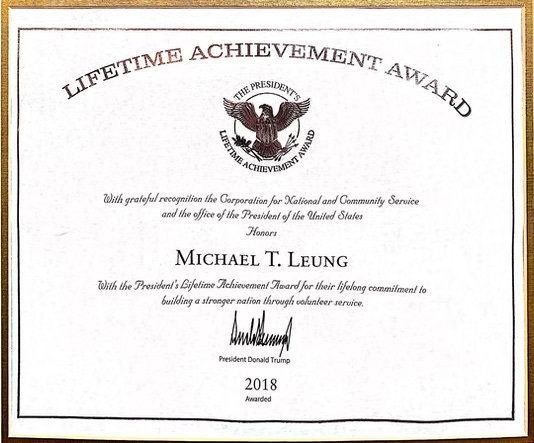
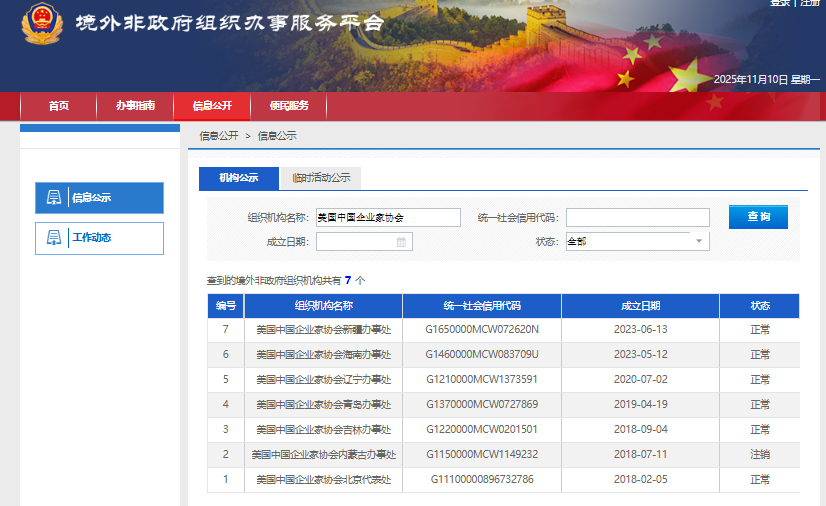
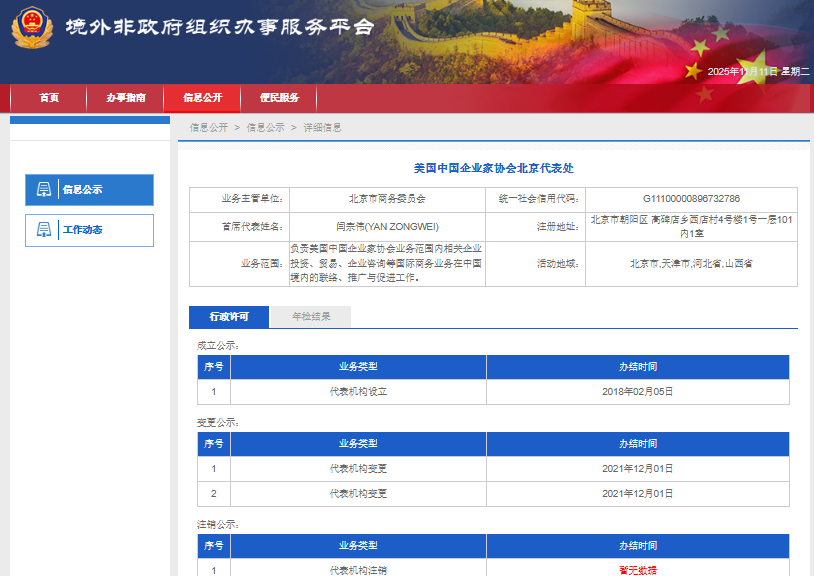
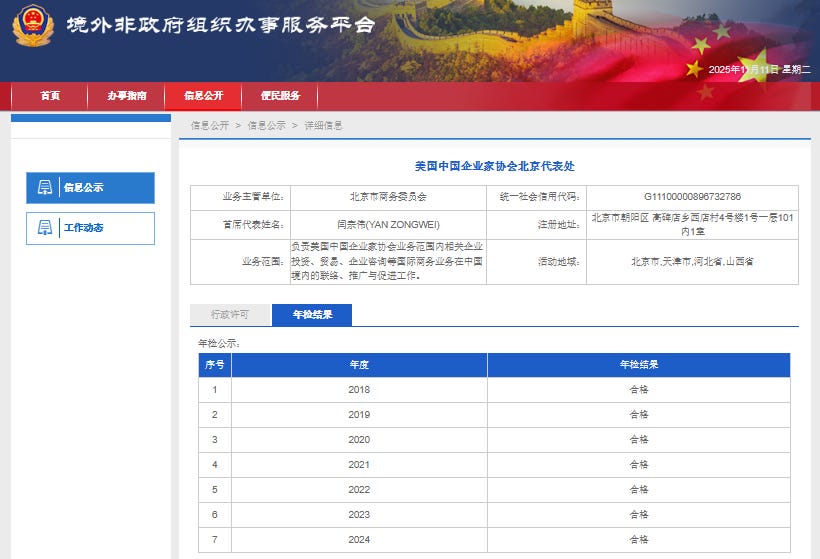
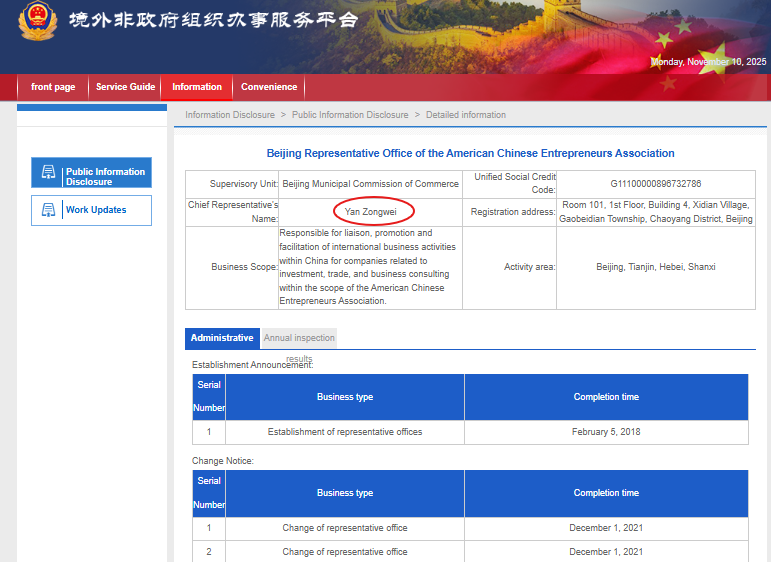
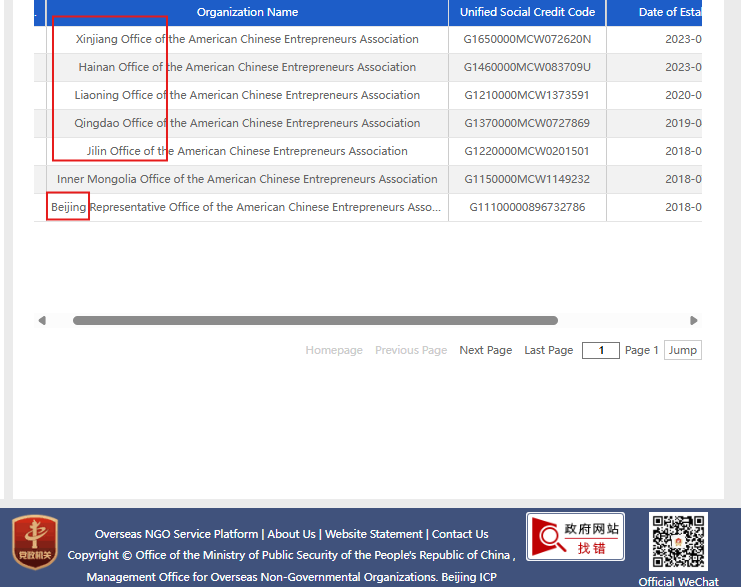
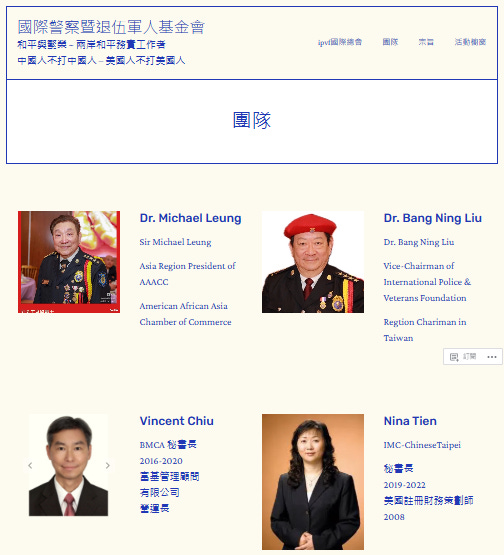
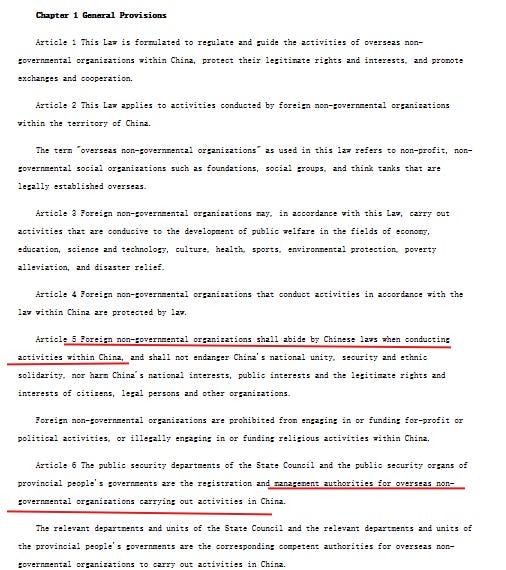
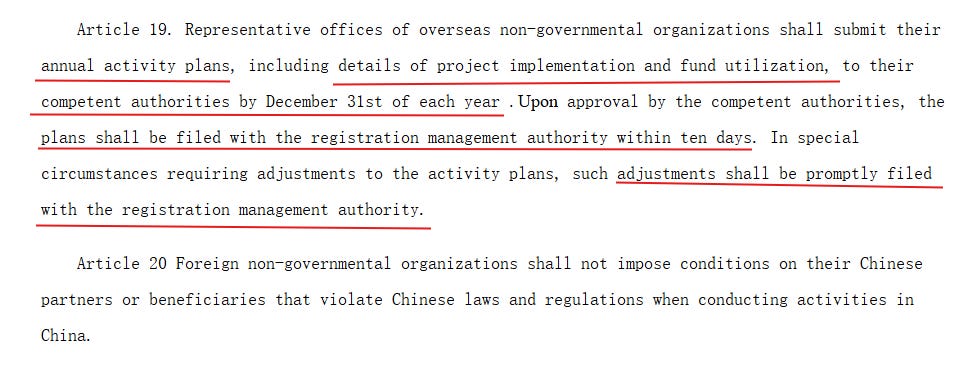
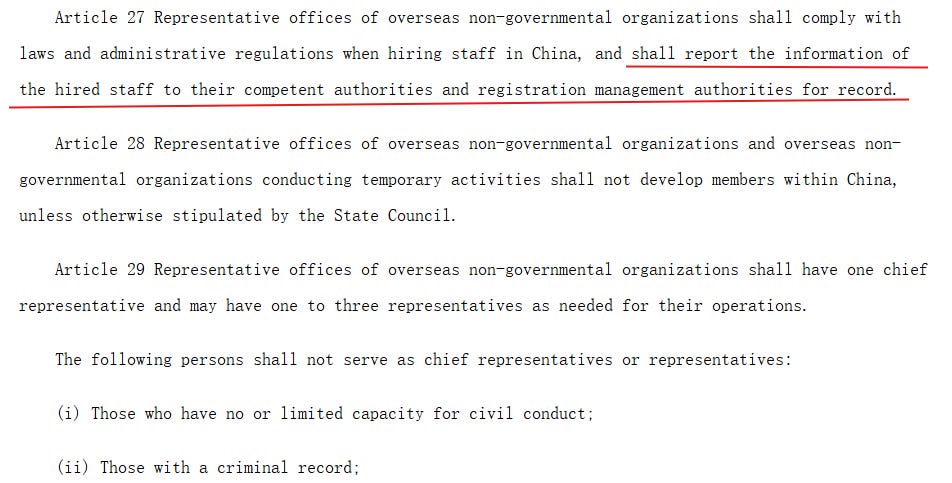
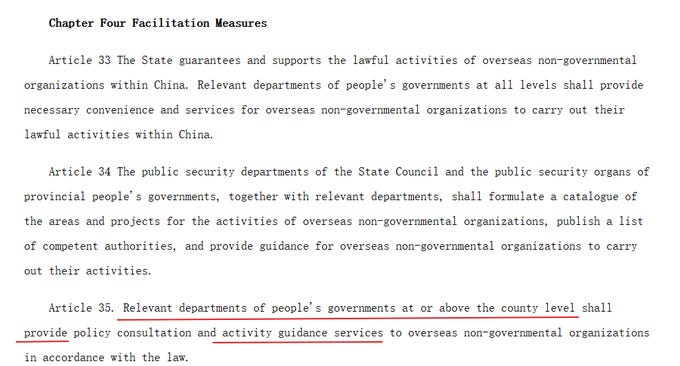
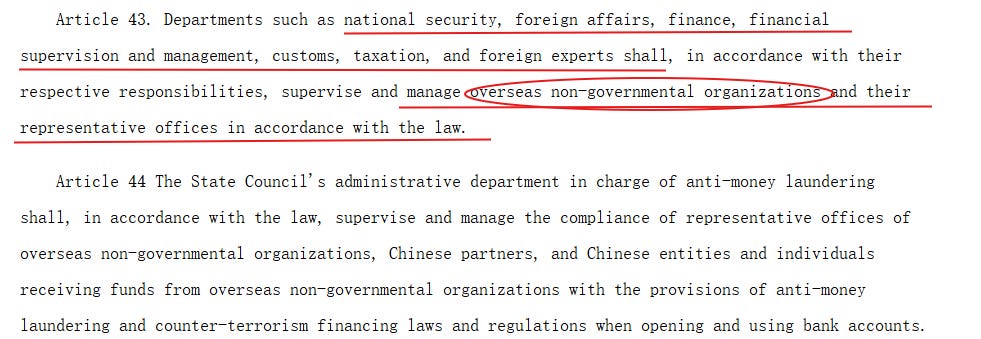
No comments:
Post a Comment